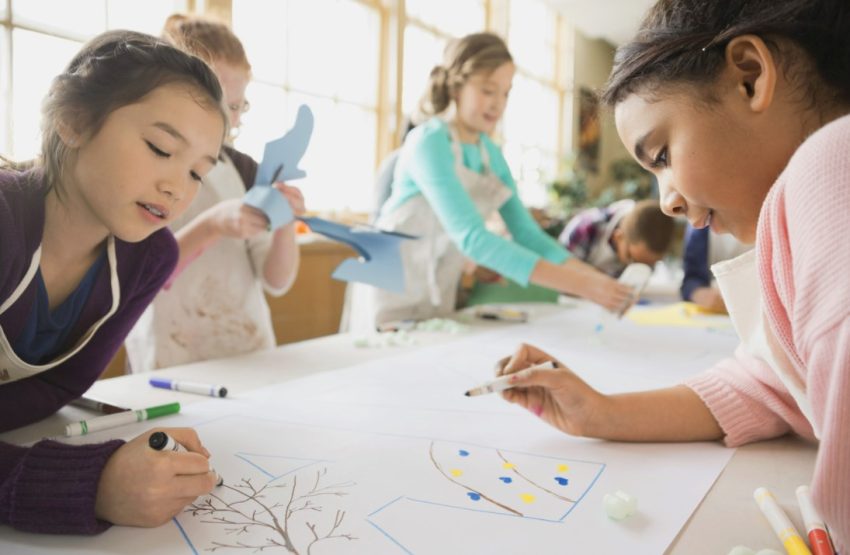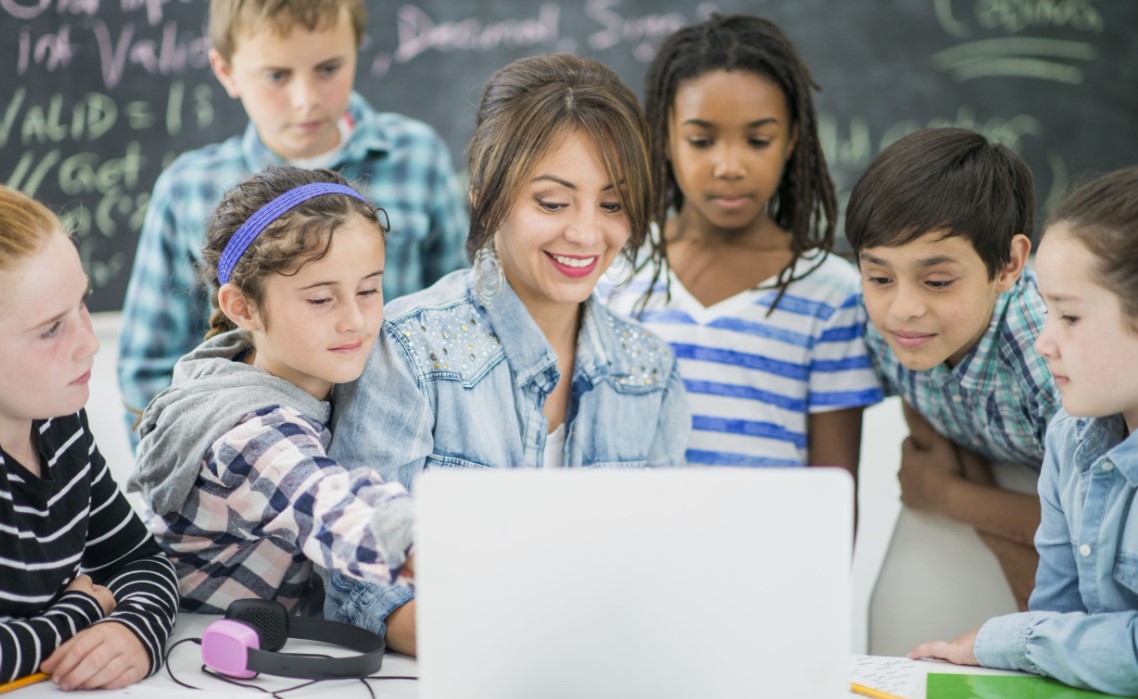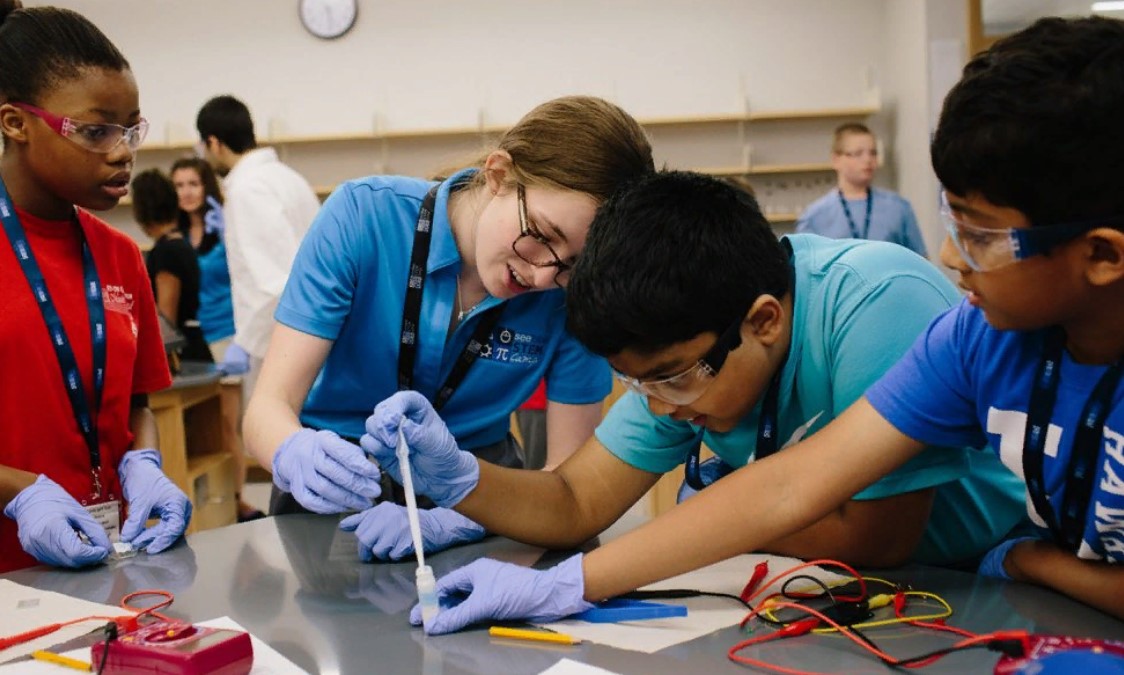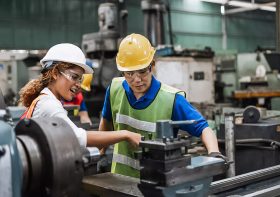The Role of Ajman’s Schools in Promoting Local Arts and Culture

The UAE has long been a hub for cultural diversity and artistic expression, and Ajman is no exception. Schools in this emirate play a crucial role in fostering appreciation for local arts and culture, contributing to the preservation of the UAE’s rich heritage. With a blend of traditional and contemporary approaches, Ajman’s educational institutions are integrating arts and culture into their curricula, helping students develop a strong connection with their roots while exploring creative talents. This article will explore how Ajman’s schools are supporting and promoting local arts and culture, as well as their impact on the community.
1. Integration of Arts and Culture into the Curriculum
Schools in Ajman are increasingly embedding arts and culture within their curricula. The UAE Ministry of Education encourages schools to incorporate local heritage, arts, and music into their educational frameworks. By doing so, schools not only enrich students’ academic experience but also foster a deeper understanding of Emirati culture. These efforts include lessons on traditional crafts, calligraphy, and folk music, as well as modern art forms. Schools are positioning arts as an essential part of education, encouraging students to engage with their cultural heritage in creative and innovative ways.
2. Extracurricular Programs Focused on Arts
In addition to formal education, many schools in Ajman offer extracurricular activities centered around arts and culture. Art clubs, music ensembles, theater groups, and dance classes provide students with opportunities to explore and develop their artistic talents outside the classroom. These programs often focus on traditional Emirati arts, such as Al Ayala (a traditional folk dance) and the creation of handicrafts, as well as global artistic practices. Extracurricular activities not only nurture creativity but also promote teamwork and leadership, contributing to a well-rounded education for Ajman’s students.
3. Celebrating UAE National Day through Art
One of the most significant cultural events in Ajman’s schools is the annual UAE National Day celebration. Schools use this occasion to showcase local arts and culture through performances, exhibitions, and cultural activities. Students participate in traditional dances, musical performances, and art exhibitions that highlight the country’s heritage. By involving students in these activities, schools ensure that the younger generation gains a sense of pride in their cultural identity and understands the importance of preserving national traditions.

4. Collaborations with Local Artists and Cultural Organizations
Schools in Ajman are increasingly collaborating with local artists, museums, and cultural organizations to bring real-world artistic experiences to students. These partnerships allow schools to organize workshops, art exhibitions, and cultural performances, giving students first hand exposure to the arts. Local artists are invited to conduct workshops on calligraphy, painting, and sculpture, while cultural organizations offer resources and expertise to enhance students’ understanding of local heritage. These collaborations enrich the educational experience and help bridge the gap between academic learning and cultural practice.
5. Promoting Visual Arts in Schools
The visual arts have become a vital part of Ajman’s school education. Schools encourage students to explore various forms of visual expression, including painting, drawing, and sculpture, often inspired by the UAE’s landscapes, heritage, and architecture. Art classes are designed to allow students to experiment with different mediums and techniques, fostering creativity and artistic skills. These visual arts programs also emphasize the importance of cultural preservation, with students often creating artwork that reflects traditional Emirati themes. Visual arts competitions and exhibitions are regularly held, allowing students to showcase their work to the broader community.
6. Cultural Field Trips and Learning Experiences
Field trips to cultural sites and museums play a significant role in promoting arts and culture among students in Ajman. Schools regularly organize visits to local heritage sites, such as the Ajman Museum, and cultural landmarks across the UAE. These excursions provide students with the opportunity to learn about the history, traditions, and artistic practices of the region in an immersive environment. Through guided tours and hands-on activities, students gain a deeper appreciation for the arts and the cultural heritage of the UAE, reinforcing the lessons learned in the classroom.
7. Music Education and Traditional Instruments
Music education is another critical component of cultural promotion in Ajman’s schools. Schools offer music classes that include lessons on both traditional and modern instruments. Students are encouraged to learn about the cultural significance of instruments like the oud and the darbuka, which have deep roots in Emirati and Arab culture. Additionally, schools often include music from other parts of the world, providing a global perspective on musical arts. Music education not only promotes cultural awareness but also enhances cognitive development and creativity among students.
8. Encouraging Students to Participate in Local Cultural Festivals
Ajman’s schools play a key role in encouraging student participation in local cultural festivals and events. Festivals such as the Ajman Heritage Festival provide platforms for students to engage with the broader community while showcasing their artistic talents. Schools often organize student performances, art exhibitions, and cultural presentations during these festivals, allowing students to actively contribute to the preservation and celebration of local culture. Participation in such events enhances students’ understanding of their cultural identity while fostering a sense of community and belonging.
9. Encouraging the Preservation of Traditional Crafts
Schools in Ajman are committed to preserving traditional Emirati crafts, which are an integral part of the country’s cultural heritage. Craft-based workshops teach students skills such as weaving, pottery, and palm frond braiding. These crafts are not only a way to maintain cultural practices but also offer students a tactile and hands-on approach to learning about the region’s history. By preserving these crafts through education, schools help ensure that future generations understand the importance of their cultural roots and the need to protect them.

10. Developing Public Speaking and Storytelling Skills
Public speaking and storytelling are significant elements of cultural expression, and schools in Ajman place a strong emphasis on developing these skills in students. Storytelling workshops, poetry recitations, and public speaking competitions allow students to practice traditional forms of oral expression that are deeply rooted in Emirati culture. These activities not only enhance students’ communication skills but also help them connect with the region’s rich history of oral traditions. Schools encourage students to explore both traditional and contemporary storytelling methods, fostering a deeper understanding of the power of narrative in cultural preservation.
Schools’ Role in Building Cultural Ambassadors
Ajman’s schools are not only educating students about arts and culture but also preparing them to become cultural ambassadors for the UAE. Through their involvement in cultural projects, festivals, and artistic endeavors, students gain a strong sense of responsibility for preserving and promoting their heritage. Schools foster leadership skills in students, encouraging them to take active roles in cultural activities and initiatives. By developing young cultural ambassadors, schools contribute to the long-term sustainability of the UAE’s artistic and cultural legacy.
The Future of Arts and Culture in Ajman’s Schools
The role of schools in Ajman in promoting arts and culture is likely to expand in the coming years. As the UAE continues to prioritize cultural development, schools will play an increasingly significant role in nurturing artistic talent and preserving cultural heritage. Future initiatives may include further collaboration with governmental bodies, integration of emerging art forms, and increased emphasis on digital arts. Parents looking to engage their children in schools that prioritize cultural education can consult a list of Ajman schools to find institutions that actively promote arts and culture. As arts and culture become more central to the education system, Ajman’s schools are well-positioned to shape the next generation of cultural leaders.
Conclusion
Schools in Ajman are playing a pivotal role in promoting local arts and culture. Through a combination of curricular integration, extracurricular activities, collaborations with local artists, and student participation in cultural festivals, these institutions are helping to preserve and celebrate the UAE’s rich cultural heritage. The efforts of these schools not only contribute to the development of artistic talent but also foster a sense of pride and responsibility among students to protect and promote their cultural identity.


